
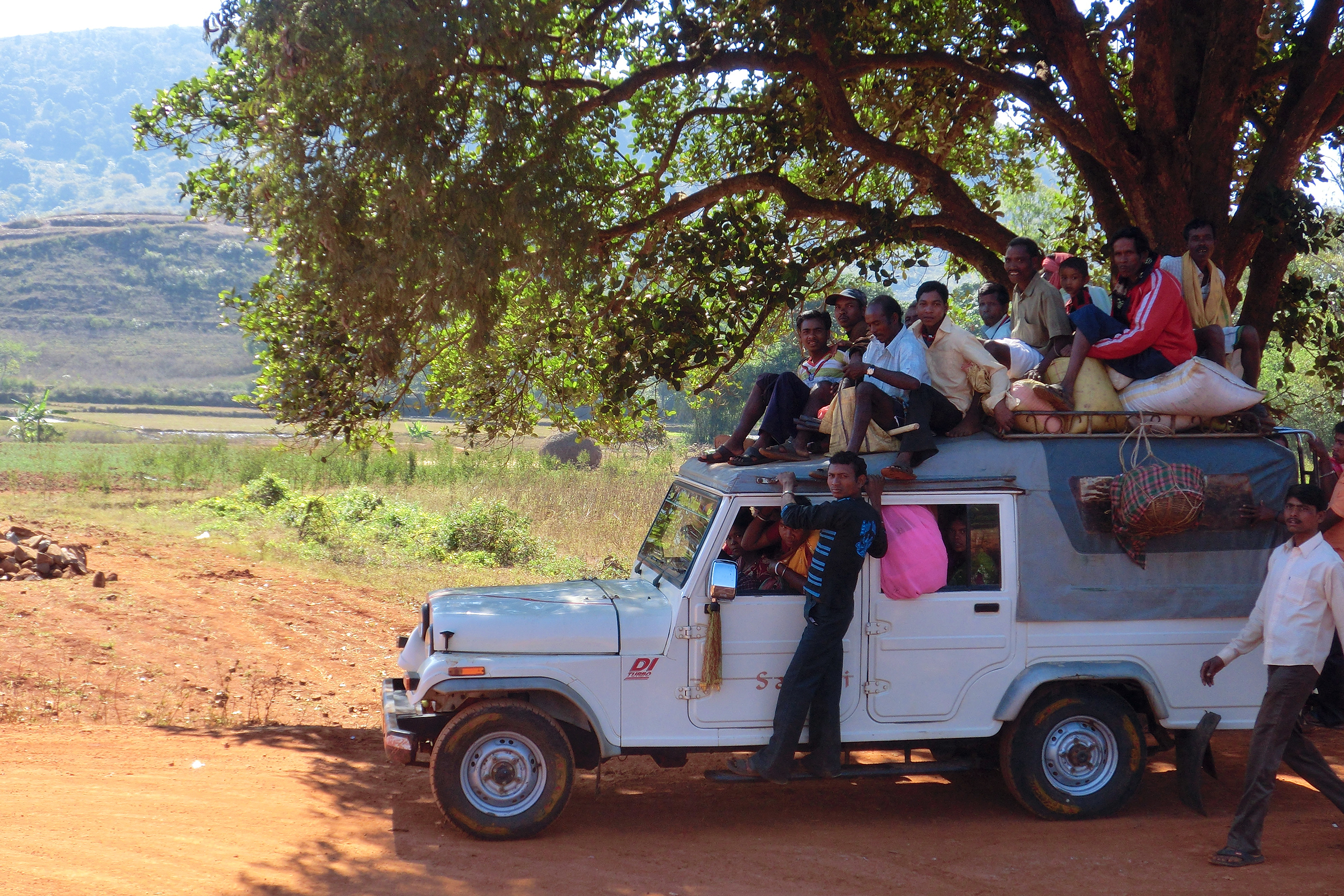
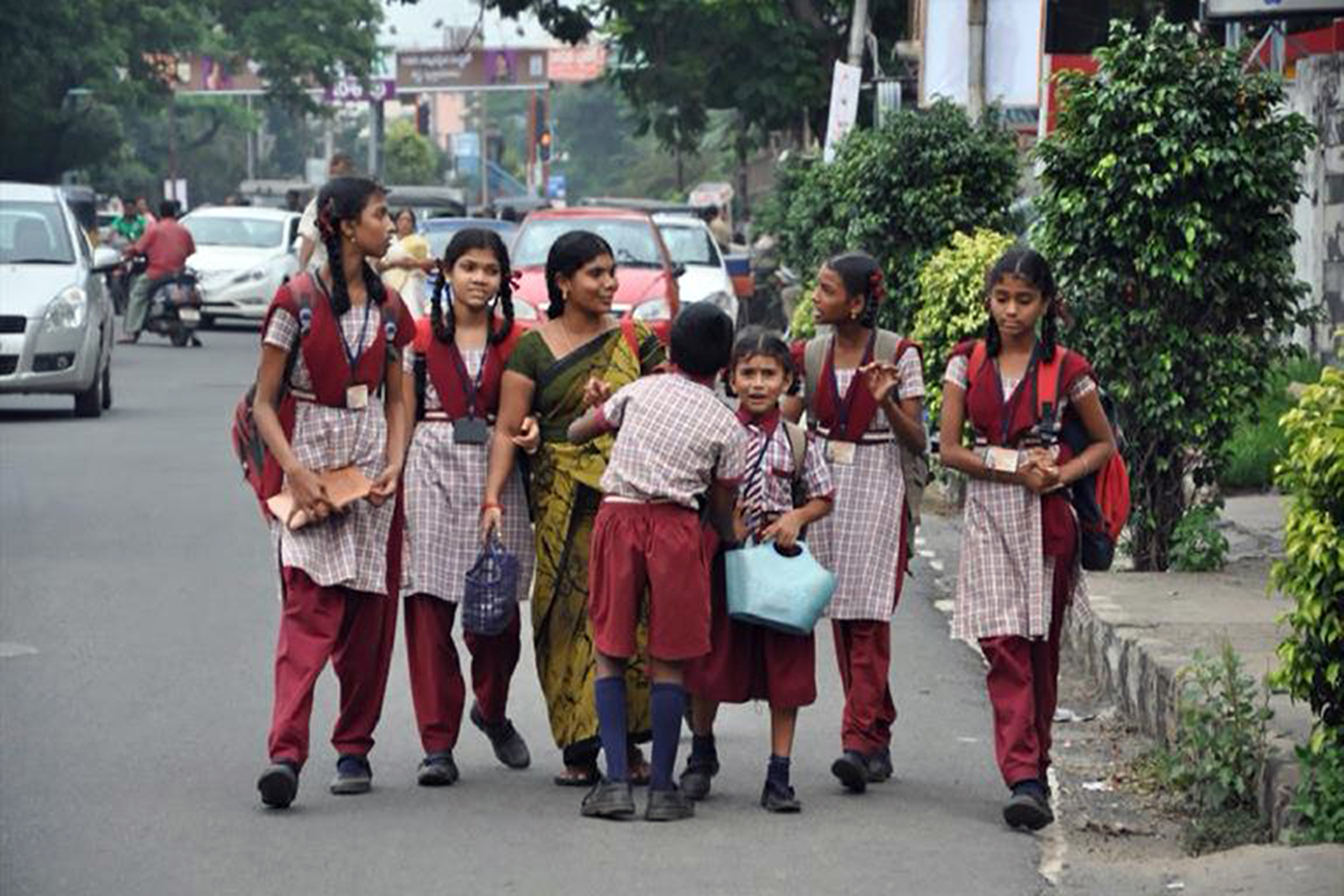
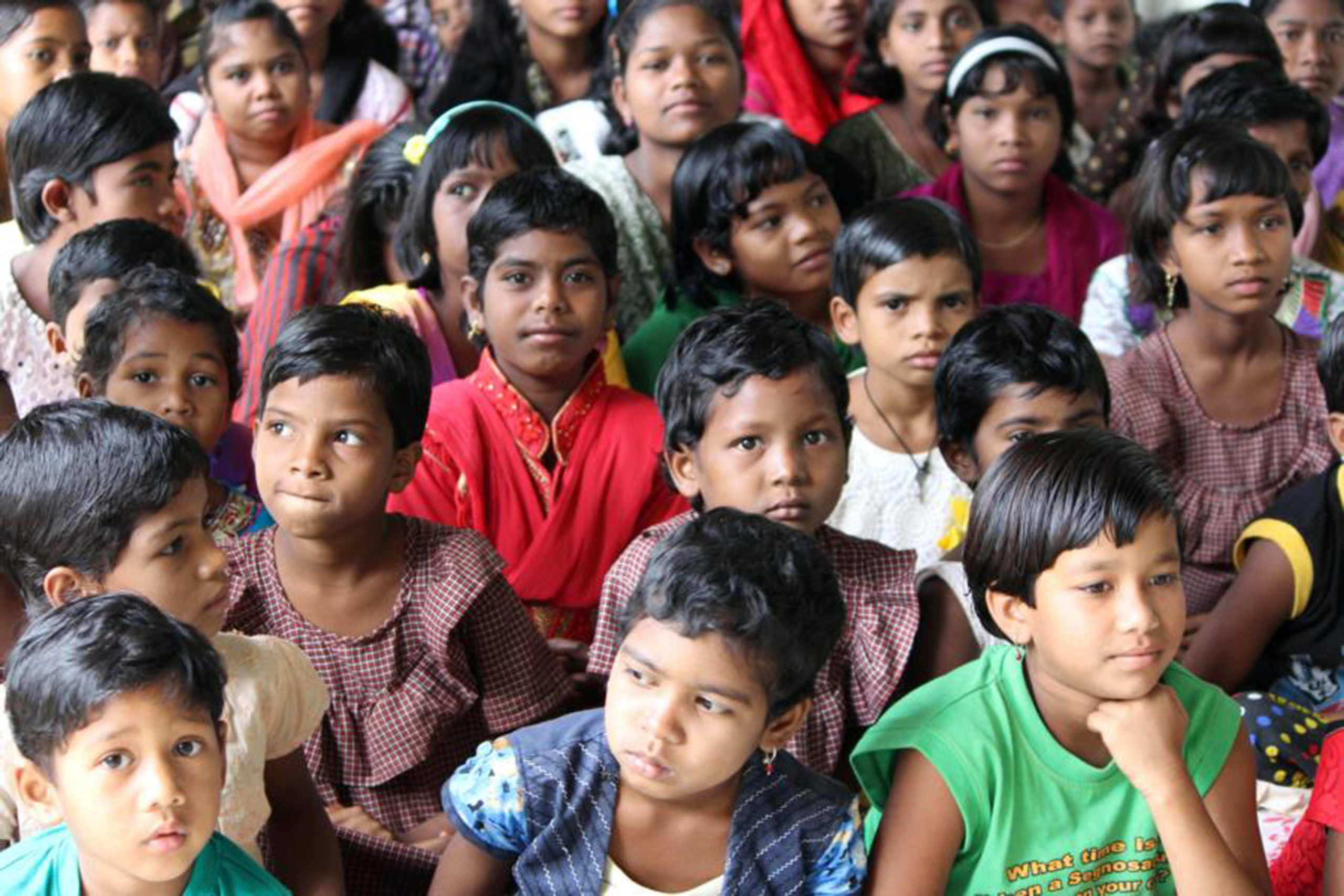
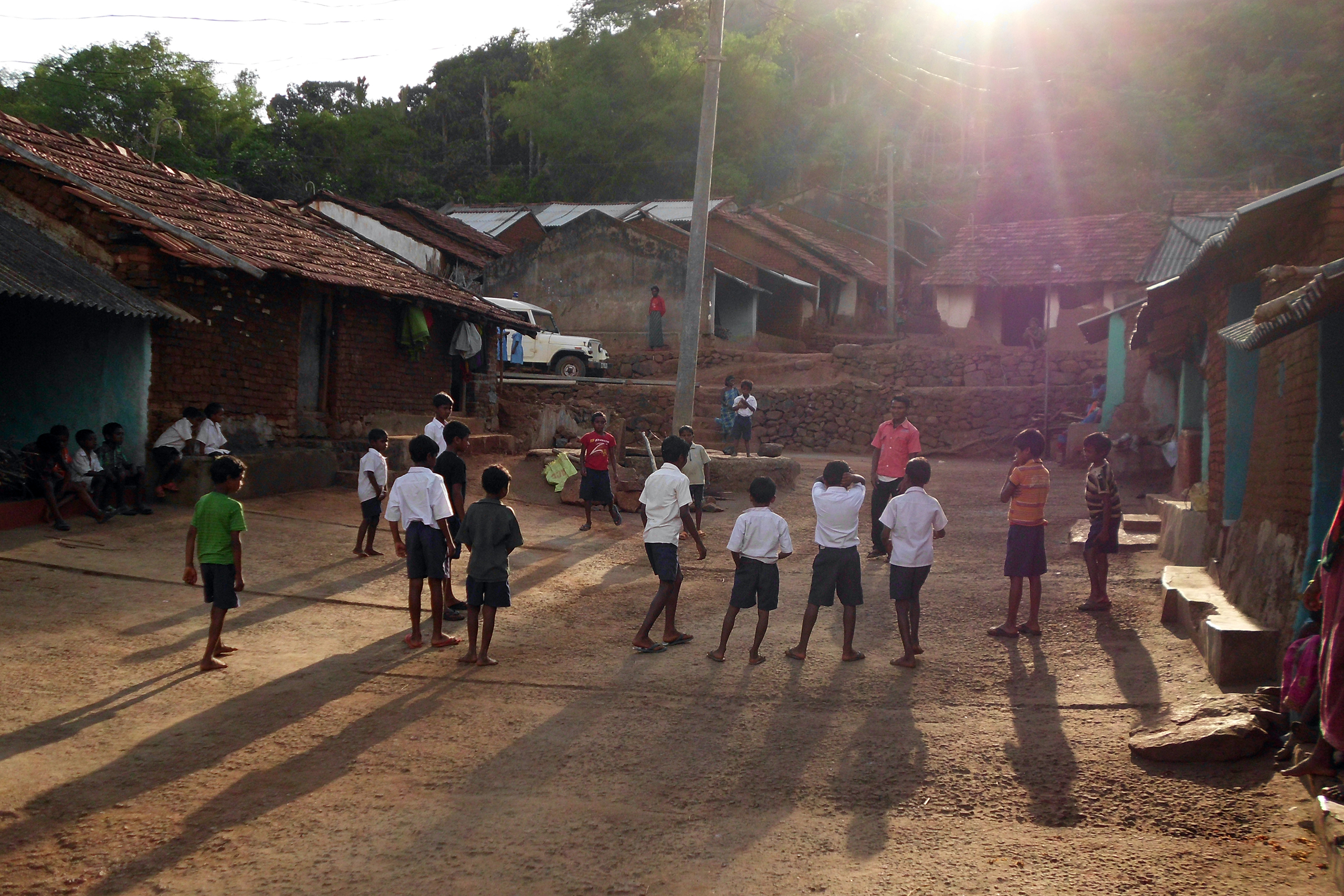
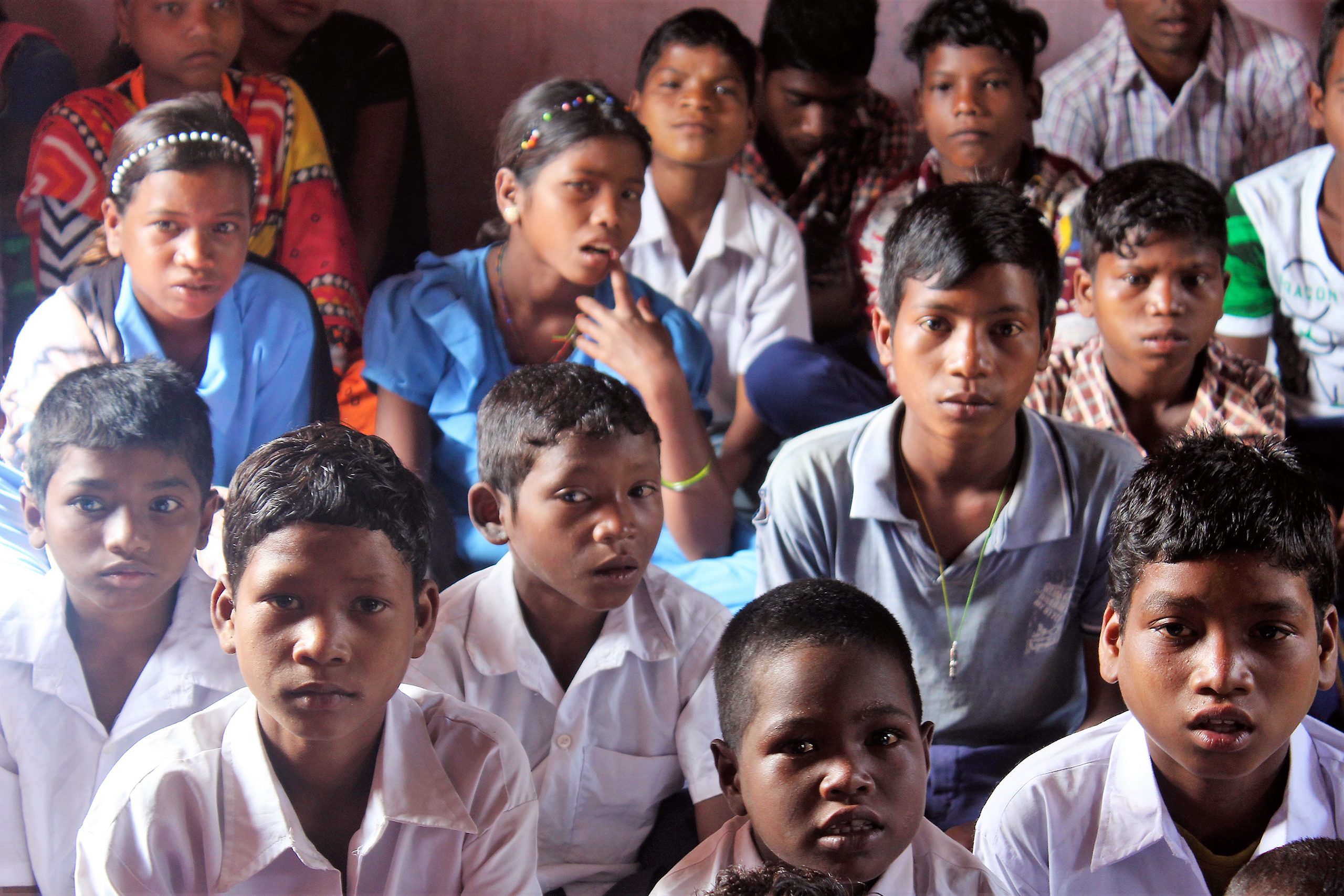
HOW IT ALL STARTED
Community service with consequences
When our son Lorenz went to India in 2010 as part of his community service, nobody knew what the possible
consequences.
Initially, we only wanted to visit him. And, initially, he just wanted to show us the village Chikalamari where he worked. And, initially, we only wanted to have the school in this village repaired which had come down. But then everything turned out differently ...
In August, Lorenz left Germany with five other volunteers. As part of the “weltwärts” program, the church development service of the Evangelical Northern Church had sent him to an Indian NGO (a non-governmental organization such as Bread for the World or the Red Cross) to work in social programs in the state of Orissa.
In order to fit into the future tasks, the volunteers were sent to the villages of the Adivasi, the indigenous people. In the villages the volunteers should live for a few weeks, help with the daily work and thus get to know the life of the formerly casteless. Lorenz went to the Adivasi-village Chikalamari – far off in the mountains and a two hour walk from the main road.
After a friendly welcome, we were given a tour through the village and visited the local school as well. A run down building with a broken roof, windows and door, where more than 40 children were being taught. We decided to provide our son with enough money to renovate the school building with the help of the villagers.
And we also wanted to help the school and the children with teaching and learning material in the future. Back home in Germany, more and more friends and acquaintances joined this idea and offered financial support.
- The project "The Children of Chikalamari" was born.
WHAT HAPPENED NEXT
And then we started to grow
We grew from Chikalamari to Chiklamari, Holdibad, Laxmipur, Doliambo, Jeypore, Kendiguda, and Uppergumandi. With the help of the ZMÖ in Hamburg, the ACS, the Adivasi department of the ev. luth Jeypore church, has been our reliable and sincere partner in India for several years. Meanwhile, some project staff is making sure the programs are implemented. A small office in Doliambo and a motorcycle, for example, helps our coordinator, Prakash Khora, to organize and visit Jeypore and the project villages.
HOW IS IT TODAY
Today we support
• the villages of Chikalamari and Chiklamari in all educational facets
• Nearly 90 students with scholarships for secondary schools
• many students for whom we partially or completely pay the boarding costs
• Almost 30 teenagers from Laxmipure and Doliambo, who learn to play an instrument in the music program
financed by us
• Nearly 80 young people from Jeypore, Doliambo and Laxmipur who learn "spoken English" in our program
• many students with additional tutoring
• more than 100 mothers of our children and teenagers who we teach to read and write
• more than 200 participants with sports and leisure programs
• workshops in the field of gender justice and theology, subsidized by the church development service of the Evangelical Lutheran Northern Church
• The sewing courses for women from Chikalamari, Doliambo and Uppergumandi
• Computer courses for teenagers in Chikalamari and Jeypore
• Since July 2017, we subsidize the health care center in Doliambo
• and cover the costs of the staff washing the clothes for the students in the boarding schools
Frauke und Klaus Eiben
WHERE DO WE WANT TO GO
We want future
Education is the future but education costs money; everywhere in the world. With more than 1.3 billion inhabitants there are unavoidable grey spots in the colourful educational landscape of India - organizationally and financially. This especially affects the people in the remote areas, in the mountains, or the former casteless
indigenous people, the Adivasi or the former untouchables, the Dalits. With this issue in mind we want to offer support, regardless of religion, skin colour, gender, and origin. With our help children, teenagers, and women get the access to education and training.
For the young people from the remote villages it is usually difficult to attend secondary school. The distances are too long and the costs for the schools and the boarding schools are often too high. We help many of these
students and cover some or all of the costs including school uniforms, school supplies, boarding costs, and increasingly also tutoring. For students who live closer to the schools, we provide bicycles. In that way, they can attend school but stay living in their village.
Good school diplomas, a confident handling of digital technology, and sufficient knowledge of English are the foundations for reliable vocational training and a promising future.
There are more than 21 languages in India. The official languages are Hindi and English. However, not all schools teach English. But, without solid English knowledge and without computer skills, it is hard to find an office job or a job in the commerce or the tourism sector. That is why we offer "spoken English" classes for boys and girls in three places with their own teachers and teaching materials. More than 95 young people now attend the free classes.
Without computer knowledge, the students in India are also detached from the modern professions. But because setting up our own computer environment would mean high follow-up costs and to employ our own teachers, we proportionally subsidize the participation in computer courses in private institutes.
Indian teenagers love cricket, football and volleyball. The enthusiasm for it is extremely large. But the possibility to become active in these kinds of sports is almost impossible in the villages and schools. Our project provides sports equipment, finances professional guidance and helps to organize tournaments.
CONTACT
Klaus Eiben
Marienstraße 5, 23909 Ratzeburg
Telefon: 045 41 870 291
Mail: klauseiben{et}googlemail.com
Dr. A. Siegemund
nordkirche weltweit - Zentrum für Mission und Ökumene
Agathe-Lasch-Weg 16, 22605 Hamburg
Telefon: 040 881 810
Mail: a.siegemund{et}nordkirche-weltweit.de

privacy
